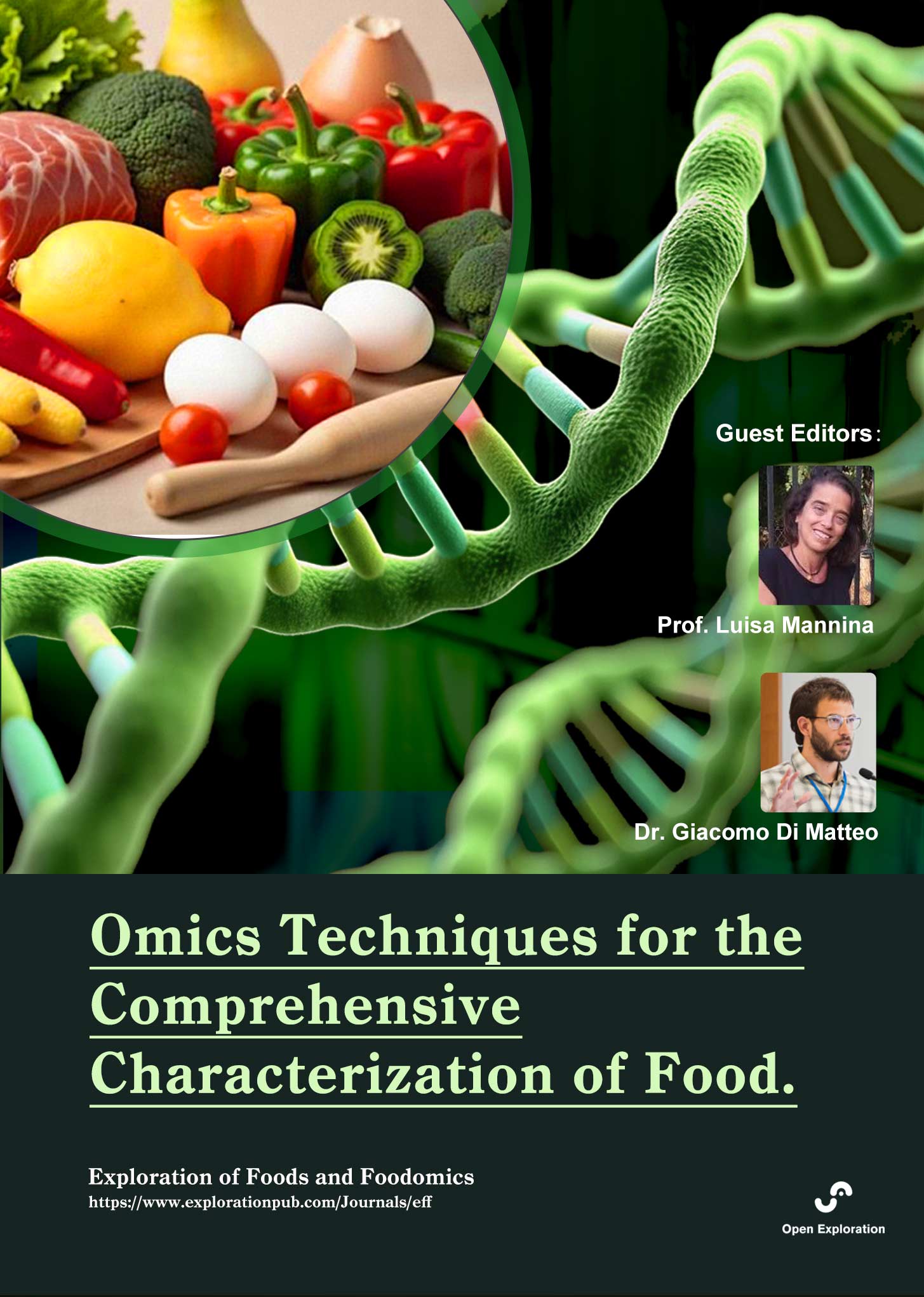
Omics Techniques for the Comprehensive Characterization of Food
Guest Editors
Luisa Mannina E-Mail
Department of Chemistry and Technology of Drugs, Food Chemistry Laboratory, Sapienza University of Rome, Italy
Research Keywords: NMR, food chemistry, metabolomics, food analysis, bioactive compounds, food characterization
Giacomo Di Matteo E-Mail
Department of Chemistry and Technology of Drugs, Food Chemistry Laboratory, Sapienza University of Rome, Italy
Research Keywords: NMR, HPLC-MS, food chemistry, metabolomics, food analysis, bioactive compounds, food characterization
About the Special lssue
Food is a highly complex system, comprising a wide variety of nutrients, bioactive compounds, and metabolites that interact with each other and with processing and storage conditions. Understanding this complexity requires analytical strategies capable of capturing the chemical, biochemical, and functional diversity of food matrices in a holistic way. In recent years, omics approaches have become powerful tools for advancing food science by enabling comprehensive characterization at multiple levels. Metabolomics, proteomics, genomics, and transcriptomics are increasingly applied to study food composition, authenticity, traceability, and nutritional quality. Among them, metabolomics has gained particular prominence due to its ability to provide detailed molecular fingerprints of foods using state-of-the-art technologies such as NMR spectroscopy, mass spectrometry, and advanced chromatographic techniques. Proteomics contributes to the identification of allergenic proteins and the study of protein modifications during processing, while genomics and transcriptomics allow for the investigation of crop biodiversity, genetic improvements, and the impact of environmental factors on food quality. Importantly, these disciplines converge in the emerging field of foodomics, which integrates multi-omics strategies to provide a systems-level understanding of food and nutrition. The integration of omics techniques, supported by chemometrics and bioinformatics, offers a unique opportunity to achieve a comprehensive view of food. This approach not only facilitates the discovery of biomarkers for quality and authenticity but also contributes to unraveling the health-promoting properties of foods and their bioactive constituents. Moreover, omics tools play a crucial role in developing sustainable food systems by valorizing by-products and ensuring food safety. This Special Issue welcomes contributions that employ omics methodologies, either individually or in combination, for the comprehensive characterization of food.
Keywords: Metabolomics, proteomics, trascriptomics, genomics, omics techniques, foodomics